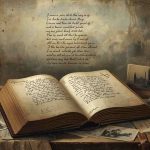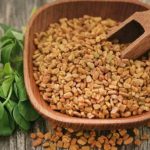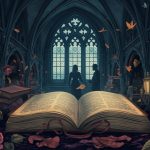Lady Macbeth is the wife of Macbeth and an important character in Macbeth by Shakespeare, One of her Monologue is very important. She is really a passionate to become powerful and pushes Macbeth to do some bad things to grasp the throne.
Her strong wish and ambition lead to serious problem, making her an important figure showing how wanting too much power can cause troubles in Macbeth. Let’s discuss the Lady Macbeth Monologue in detail;

Original Text
The raven himself is hoarse
That croaks the fatal entrance of Duncan
Under my battlements. Come, you spirits
That tend on mortal thoughts, unsex me here,
And fill me from the crown to the toe top-full
Of direst cruelty! make thick my blood;
Stop up the access and passage to remorse,
That no compunctious visitings of nature
Shake my fell purpose, nor keep peace between
The effect and it! Come to my woman’s breasts,
And take my milk for gall, you murdering ministers,
Wherever in your sightless substances
You wait on nature’s mischief! Come, thick night,
And pall thee in the dunnest smoke of hell,
That my keen knife see not the wound it makes,
Nor heaven peep throug the blanket of the dark,
To cry ‘Hold, hold!’

Line Wise Modern Translation And Explanation
Text Lines
The raven himself is hoarse
That croaks the fatal entrance of Duncan
Under my battlements. Come, you spirits
That tend on mortal thoughts, unsex me here,
Explanation
In these lines from Shakespeare’s play “Macbeth,” Lady Macbeth expresses her wish for ruthless determination. She compares the hoarse of raven croaking to the announcement of King Duncan’s impending arrival at her castle.
Seeking assistance from dark forces, she questions the spirits to remove her feminine qualities and fill her with cruelty. Lady Macbeth wants to suppress any feelings of guilt or remorse to ensure she can carry out a dreadful deed without hesitation.
Text Lines
And fill me from the crown to the toe top-full
Of direst cruelty. Make thick my blood,
Stop up th’ access and passage to remorse,
That no compunctious visitings of nature
Explanation
Lady Macbeth is asking for a total transformation. She wants to be filled entirely with the most excessive cruelty, blocking any feelings of guilt or regret.
By thickening her blood and closing off any way for remorse to enter, she aims to eliminate any natural compassion. This shows her determination to carry out ruthless actions without any internal conflict.

Text lines
Shake my fell purpose, nor keep peace between
Th’ effect and it. Come to my woman’s breasts,
And take my milk for gall, you murd’ring ministers,
Wherever in your sightless substances
Explanation
Lady Macbeth is seeking to abolish any obstacles that might block her dark intentions. She asks for spirits to remove any conflicting thoughts or inner peace that might conflicting with her plans.
Metaphorically, she wants her nurturing and motherly instincts to be replaced with bitterness and cruelty. She implores invisible, malevolent beings to take away her compassion, comparing her nurturing nature to poison, so she can act without hesitation or remorse.
Text Lines
You wait on nature’s mischief. Come, thick night,
And pall thee in the dunnest smoke of hell,
That my keen knife see not the wound it makes,
Nor heaven peep through the blanket of the dark
To cry, ‘Hold, hold!’
Explanation
Lady Macbeth wishes for darkness to cloak her actions, asking for the darkest night possible to hide her deeds. She desires the night to be so thick with darkness that even her own knife won’t see the harm it inflicts.
She fears that if heaven glimpses her actions, it might intervene and prevent her from following through with her plans. This reveals her urgent plea for secrecy and an absence of any moral or divine intervention, enabling her to carry out her intentions without interference.
Symbolism Of Lady Macbeth
| Symbol | Representation in “Macbeth” |
|---|---|
| Bloodstained Hands | Symbolizes Lady Macbeth’s guilt and the moral consequences of her ruthless actions, leading to her mental breakdown. |
| Sleepwalking | Represents Lady Macbeth’s subconscious torment and inner turmoil, manifesting as a result of her guilt and the heavy toll it takes on her sanity. |
| Dagger | The dagger Lady Macbeth envisions during Duncan’s murder symbolizes her and Macbeth’s descent into treacherous ambition and the irrevocable actions that will follow. It embodies the allure and danger of their power-seeking desires. |

Summary Of Lady Macbeth Monologue
Shakespeare’s “Macbeth” features a strong and eerie speech by Lady Macbeth in Act 1, Scene 5. In this Shakespeare conveys her intense desire for power and her readiness to go to great lengths to obtain it. An important part of the play, the speech sheds light on Lady Macbeth’s personality and foreshadows the fatal events that take place.
Lady Macbeth alludes to the loud raven, a representation of death and gloom, in the first few words. This establishes the foreboding tone of her discourse. Since she connects the raven’s croak to King Duncan’s approaching visitation to her castle. The word “fatal” is used to highlight how serious the situation is and to imply that something terrible is about to happen.
Lady Macbeth’s monologue gains a magical quality via her invocation of ghosts. She asks these spirits to “unsex” her, a term that suggests an intention to deprive her of her femininity. This plea is important because it indicates Lady Macbeth’s conviction. That gender norms could prevent her from carrying out the vicious deed she has in mind. She wants to become more like a male. A male who was traditionally associated with strength and violence in society. So she asks to be “unsexed,” hoping to change that.
In the following lines, the yearning for brutality and the repression of regret become dominant themes. Lady Macbeth expresses her steadfast devotion to the nefarious conduct. She is plotting by wishing to be covered in the “direst cruelty” from head to toe. In order to avoid indecision or second thoughts, the request to “make thick my blood” implies a wish for emotional numbness, or a thickening of her emotional responses.
Closing off “access and passage to remorse” is a clear statement of Lady Macbeth’s intention to remove any internal struggle. She seeks to prevent any compunctious visitings of nature. By suggesting that she wishes to stifle any guilt feelings that may develop from a moral inclination.
Going forward, Lady Macbeth aims to dispel any doubt about her “fell purpose” and break any potential harmony between the intention and the result. This demonstrates her unwavering dedication to the plan. And also her efforts to break down any personal obstacles that might stand in the way of her goals being realized.
In the lines that follow, Lady Macbeth asks the spirits to take away all that makes her a woman—her breasts and milk, in particular. Her desire to replace her maternal, caring feelings with resentment and cruelty is a startling example of this figurative metamorphosis. She compares her milk to gall, a bitter material, illustrating how deeply she wants to undergo a full transformation.
The use of “murd’ring ministers” as imagery highlights how brutal the change she wants to see is. It is suggested that these spirits, who are described as invisible and sightless entities, participate in “nature’s mischief.” Lady Macbeth views her scheme as an alliance with supernatural forces to upend the natural order, rather than just a human ambition.
Going deeper into her monologue, Lady Macbeth begs the spirits to create a “thick night.” This darkness is a cry for her actions to be kept hidden in the deepest recesses of hell. And not just a metaphor for secrecy. The phrase “dunnest smoke of hell” conjures up a clear image of a night covered in the thickest, darkest mist, fostering an environment that is ideal for her evil schemes.
Moreover, her “keen knife” metaphor highlights the potentially violent nature of her acts. She hopes the darkness will be so thick that her knife won’t even be able to see the cuts. This visual conveys her willful blindness to the devastation she is creating. As well as her desire for concealment and a detachment from the consequences of her actions.
Lady Macbeth’s request that the skies not “peep through the blanket of the dark” is blatantly symbolic of her fear of supernatural intervention. This indicates that she was conscious of the ethical ramifications of her scheme and that she might face judgment from higher powers. Her incessant plea of “Hold, hold!” and the intensity in her voice convey her urgent attempt to avoid any intervention.
In her monologue, Lady Macbeth explores her deep desire for power and the extent she will go to in order to get it. Her character is given further depth by the use of vivid imagery, metaphor, and supernatural elements, which show a lady motivated by a vicious ambition that transcends morality and social conventions. The monologue sets the stage for a story of unbridled ambition, moral decay, and the results of giving in to the darkest urges of the human brain. It also foreshadows the catastrophic events that transpire.
Relationship Of Lady Macbeth With Other Characters
| Character | Relationship with Lady Macbeth |
|---|---|
| Macbeth | Close partnership; she manipulates and encourages him towards ambition. |
| King Duncan | Initially seen as an obstacle, she hides nefarious intentions leading to murder. |
| Banquo | Viewed as a threat; relationship marked by suspicion and fear. |
FAQs
Lady Macbeth is the wife of the play’s protagonist, Macbeth, known for her ambition and tricks.
Lady Macbeth’s famous soliloquy is in Act 1, Scene 5, where she calls upon the spirits to “unsex” her and fill her with cruelty.
Monologue of Lady Macbeth revolves around her desire for power and her willingness to shed her femininity to achieve her ambitious goals.
Related Posts:
Read More










I’ve been browsing on-line greater than three hours these days, but I never found any attention-grabbing article like yours. It is lovely price enough for me. In my opinion, if all site owners and bloggers made good content material as you did, the web will be a lot more helpful than ever before.